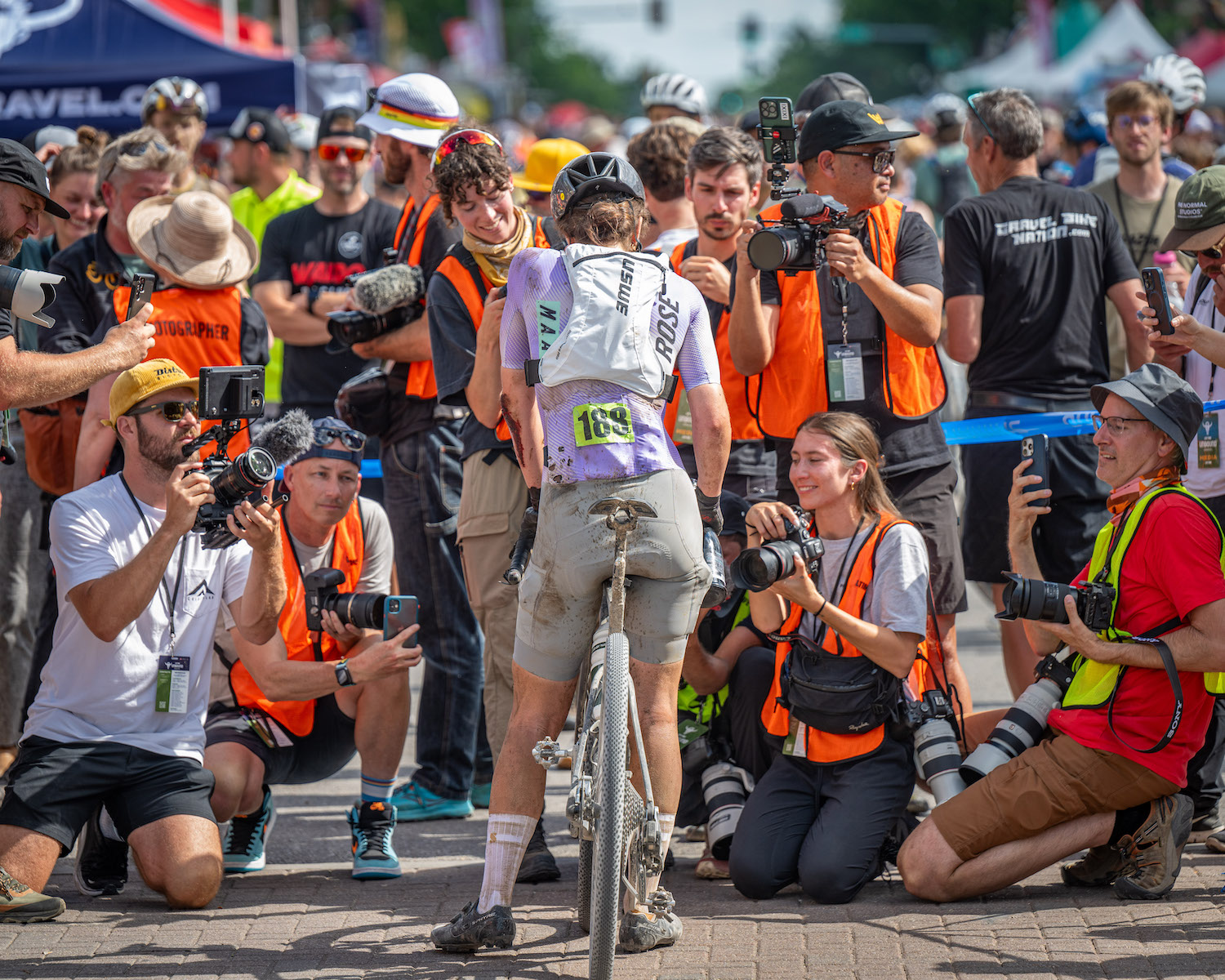
For the first time in many years, Unbound Gravel delivered a torrent of positive stories and the word 'mud' was banished like a bad dream. A return to a challenging north course and dry weather delivered fast races, while fresh faces joined the fray alongside cagey veterans for suspenseful attacks and sprints. With new rules and a separate start, the pro women in the Unbound 200 finally had their day in the sun.
In the three editions of Unbound Gravel 200 before 2024, the men’s winners were decided in sprint finishes in downtown Emporia and the women’s winners rode to solo victories. Looking at just those basic outcomes, the men’s races appeared to be much more explosive and gripping, but that was not the real story and many of the pro women had asked to have their ‘own race’. They got it and it was incredible.
The Flint Hills of Kansas provide a backdrop for the world to witness the best athletes, and newest equipment, in gravel racing. However, there were also some smaller snapshots, before and after the races, that caught our attention from small-town USA to confirm that the 'spirit of gravel' is still alive and well.
Big win for pro women, collectively
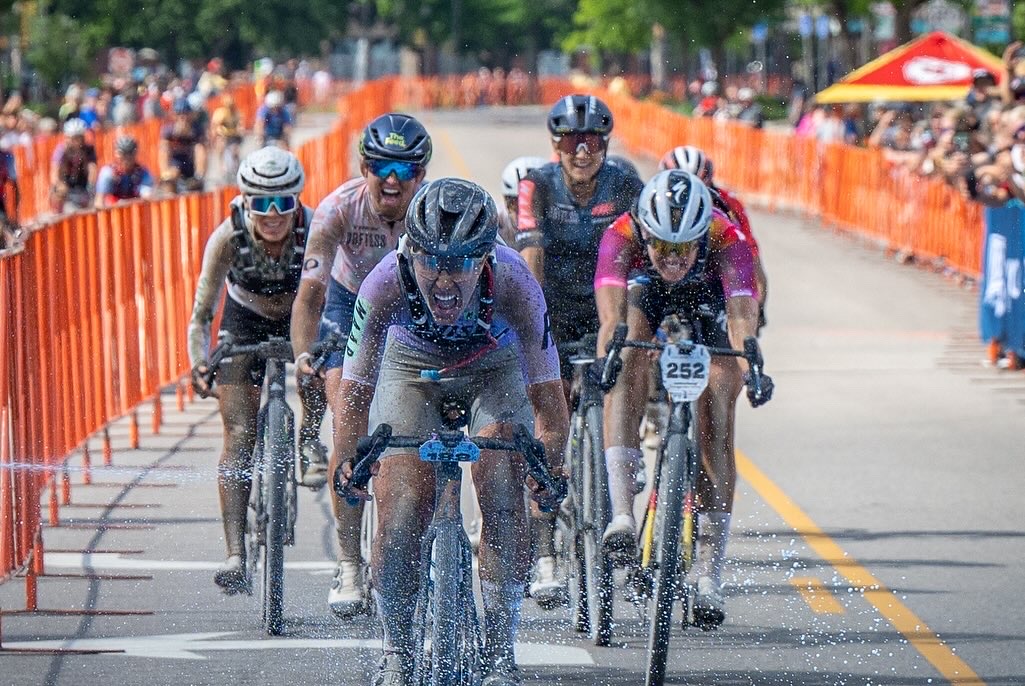
Pro women mixed in the mass starts with pro men and hundreds of elite amateur men had become just plain messy, from start to finish. Life Time listened to feedback from past competitors and changed the rules this year and – despite some doubts on the run in – it did end up being a game changer.
First, the pro men set off for the 200-mile battle 15 minutes ahead of the pro women. Then, the 1,039 entries in the amateur field, men and women, were held until 25 minutes after the pro women. The result was a riveting women-only battle for the leading contenders for the 10-hour-plus day of racing, and the punctuation was a sprint finish on Commercial Street for the first time.
“I loved the separate start, especially with a bigger time buffer than last year. It completely changed the dynamic of the race. If not for the separate start and time gaps, the race would’ve not ended in a nine-woman sprint,” said 2021 champion Lauren De Crescenzo, who was in the mix and finished nine spots behind winner Rosa Klöser (MAAP-Rose Bikes).
“I think we certainly proved how exciting women’s racing is with our performance yesterday [Saturday]. From an incredibly stacked field from all over the world we whittled down to nine, with attacks and counters and a nine-up sprint finish after 200 miles. Insane,” said Sarah Sturm (Specialized), who rode in the front group all day and finished seventh.
Second-placed finisher Geerike Schreurs (SD Worx-ProTime), who was new to Unbound, summed it up by saying: "It was basically our own [race] from start to finish, which is awesome because you can say the strongest woman won today.”
Fast and furious
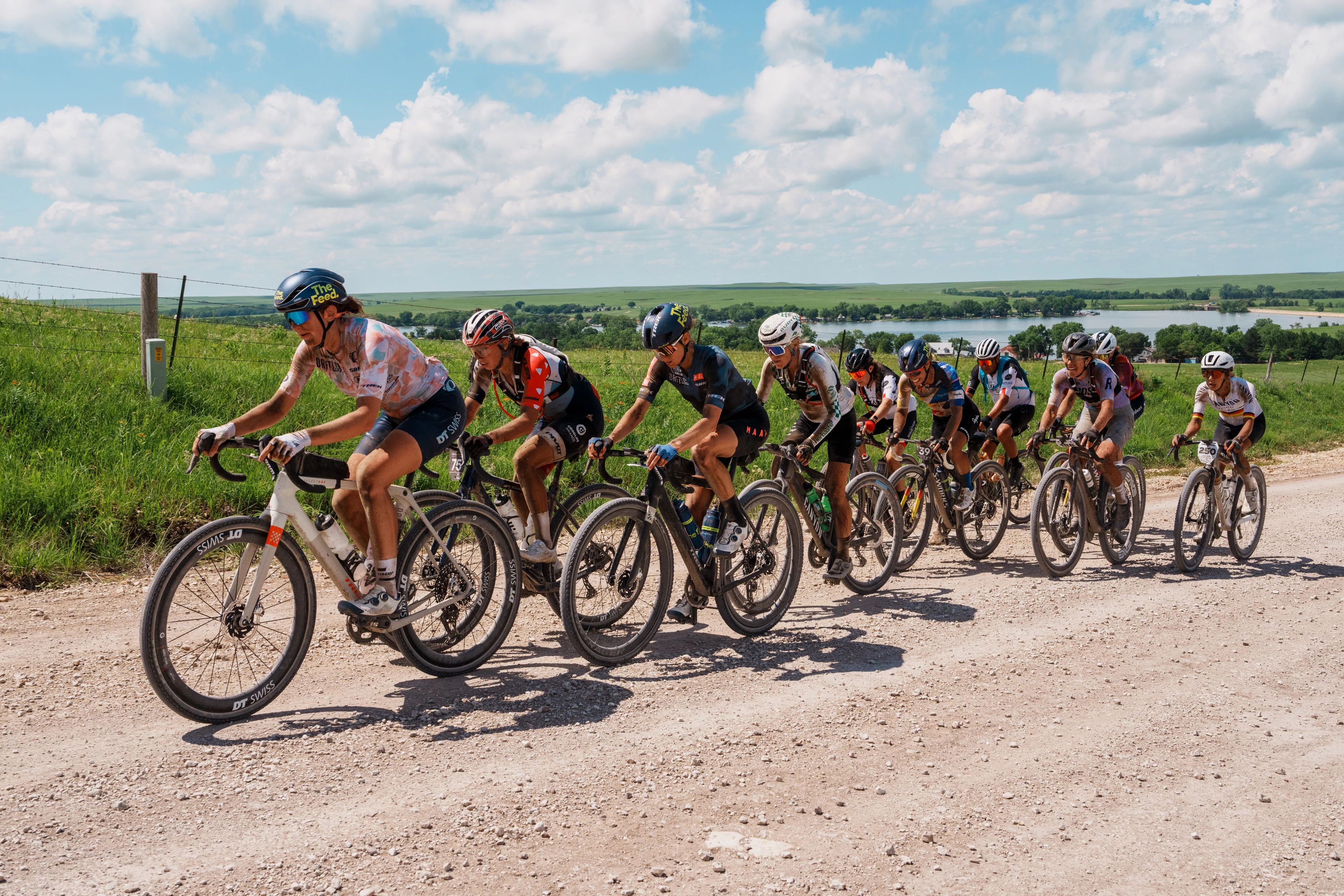
Would a new start configuration give pro women the space to showcase their talents for 200-plus miles in between a dedicated start and a sprint finish? Indeed. Several riders confirmed to Cyclingnews that there was enough separation to allow for tactical execution with their peers. It was no longer just “women in a men’s race”?
“The whole day, I only raced with women," said Sturm, who has finished in the top 10 for pro women each of the past three years.
"Normally it’s just about going ALL OUT from the gun and trying to luck your way into the fastest group of men. This means we usually never know where anyone is and it becomes women in a men’s race. For me, [Saturday] was amazing, finally I felt like I belong at the front of these races because it wasn’t a chaotic start with men.”
Life Time was able to provide live video sporadically from the race via their Instagram feed, and the majority of that coverage was from a four-wheeled vehicle trailing the lead group of pro women. The remoteness of the course did not allow the video to be broadcast when Klöser ran into trouble and had to make up a two-minute margin to rejoin the lead group, giving her the shot at victory, but the Unbound debutant didn't care about that because she knew her efforts could amplify the moment later.
“I was so happy that we had completely our own race that I decided I’m gonna keep pushing and keep working and give a lot of pulls because I wanted to show everyone how cool it can be that we have our own race,” said Klöser at the finish, after she flatted and crashed late in the race then chased back to the front group for the finale.
It was an incredible sight to finally see some of the action as the pro women swept across the Flint Hills at high speeds, averaging 19.4 mph (31 kph) for the fastest times in a women's finish at Unbound 200 since women first took part in 2007. Sturm was right, there were no men in sight and it was a true professional platform for the pro women.
Global growth
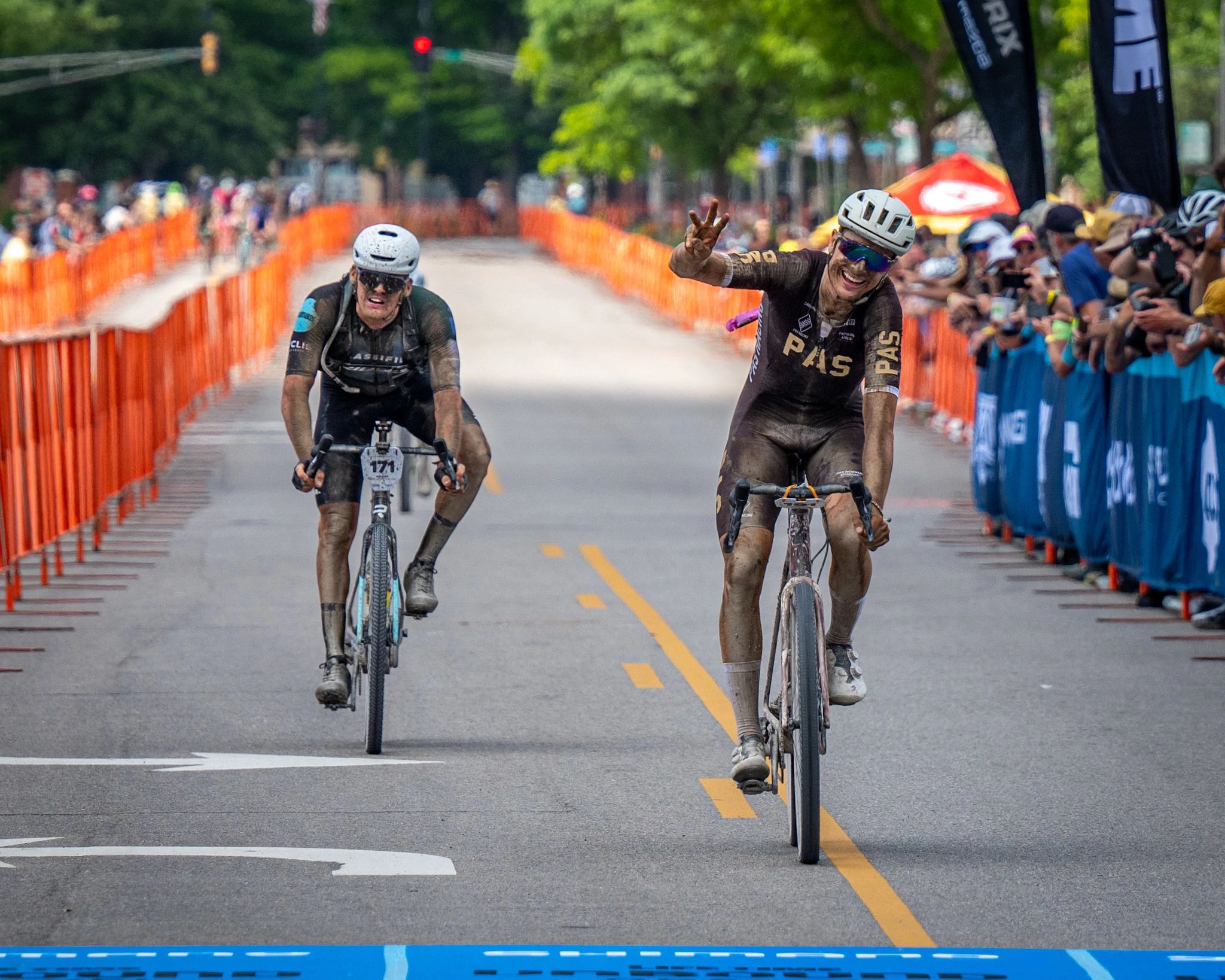
Unbound Gravel has exploded from just 36 riders who set off from a parking lot for a 200 mile adventure in 2006 to a record-setting 5,000 registered riders this year, taking part in distances of 25 miles to 350 miles. It is heralded by the Emporia Convention and Visitors Bureau as the “world’s largest gravel cycling race”, who likes to see the influx of economic development with visitors from all 50 states and 40 countries.
One of the indicators of global growth at also comes from the international field of competitors in the pro races at Unbound Gravel 200. In 2021, the top 20 in the women’s results was all riders from the US, most of them from western states. In the men’s top 20 that year, only five of the riders were from outside the US, the ‘Dutch mafia’ of Laurens ten Dam and friends taking four of those slots.
This year in the pro women’s field, eight riders in the top 20 were from outside the US, including four of the top six, while a third of the field was international.
For the first time, the men’s top 20 in the 200-mile race was dominated by international riders, 12 from outside the US and the field was half international. And neither Unbound Gravel 200 men’s and women’s winners came from the home country - Lachlan Morton from Australia and Rosa Klöser from Germany.
No dollars, but still the biggest gravel prize
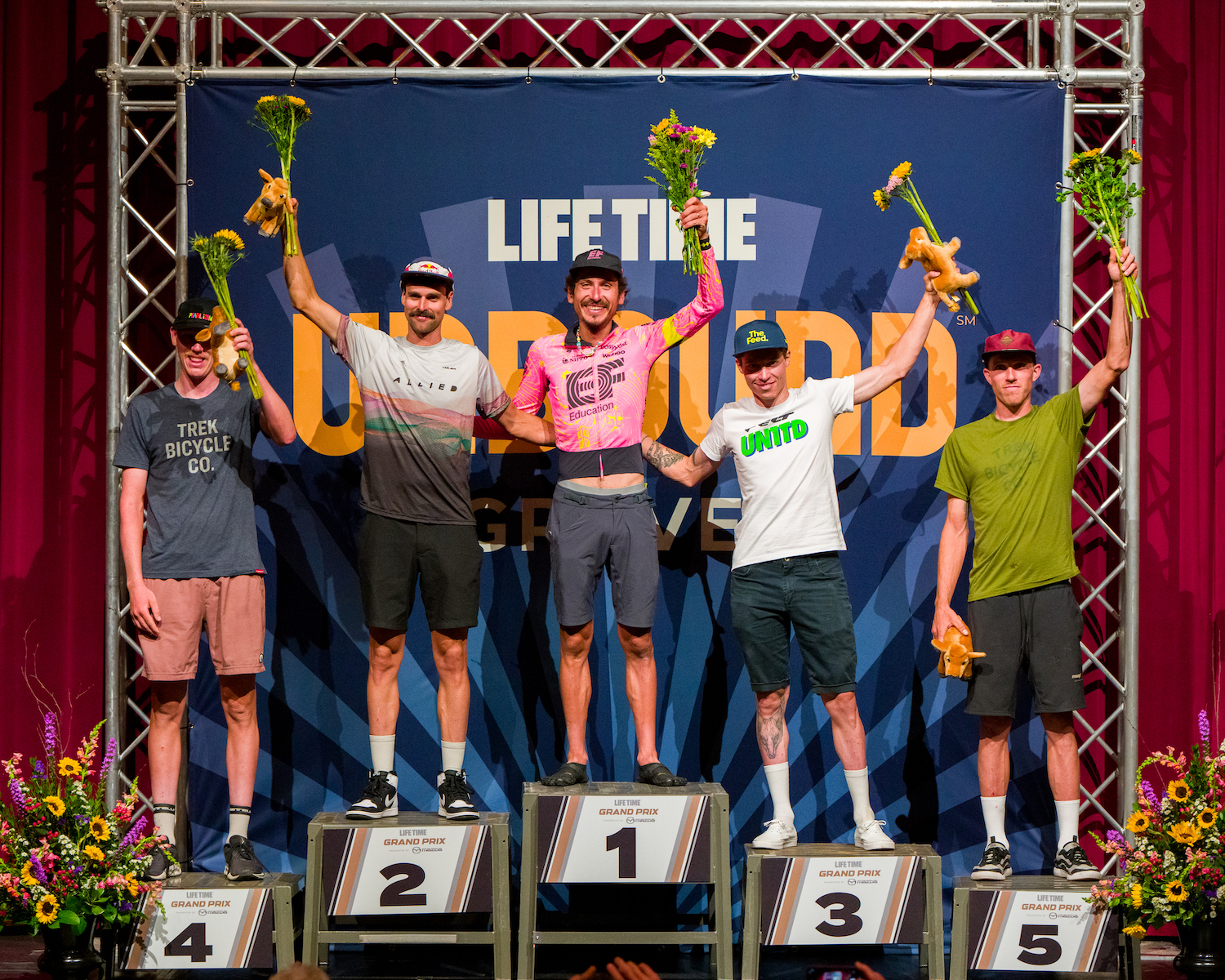
Unbound is the biggest race in gravel with the smallest prize purse, but then again 'bragging rights' are priceless.
The race that everyone in gravel wants to win may be a ticket to finding enduring gravel sponsorship or, in the case of those who have it, boosting your worth to partners and teams but what the winner actually walks away from the podium with is a lofty title – King or Queen of Unbound – and a custom belt buckle.
In a climate where gravel is becoming more and more popular Unbound is the race everyone wants to be at, riders even have to go into a lottery for the chance to get an entry – costing $295 in the 200 distance. There are few guarantees, no matter how well prepared, that once you’ve got that entry the race will yield a result as a lot can go wrong over 200 miles of unforgiving terrain. Still, one certainty is that the prize money will be the same no matter what happens, $0.
As the discipline continues to increase its level of professionalism the number of races with substantial prize purses are also continuing to grow, with a new slate of events that have rewards for winning that can help pay for the expenses associated with trying to pursue racing in a discipline which is heavily populated by privateers.
The USA Cycling Gravel National Championships, for example, has a prize purse of $60,000, FNLD GRVL offers €20,000 and RADL GRVL in South Australia AUD$10,000.
The biggest prize purse of all, however, is the Life Time Grand Prix series, which includes Unbound Gravel. There is a total of $300,000 up for grabs for the top 10 men and women and among the field of 60 invited athletes (30 men, 30 women), the winners take $30,000 each.
That means there was at least part of the field Saturday that may reap a prize payout later with the help of points earned with their Unbound results. The men’s winner Lachlan Morton, for one, is a Life Time Grand Prix athlete and after Unbound was sitting fourth on the leaderboard.
Unbound clearly doesn’t need money to attract riders, it has them in droves, but should a race that is at the pinnacle of the sport deliver a prize purse to match or is the opportunity it provides to showcase a rider enough?
'Spirit of Gravel' alive in Kansas
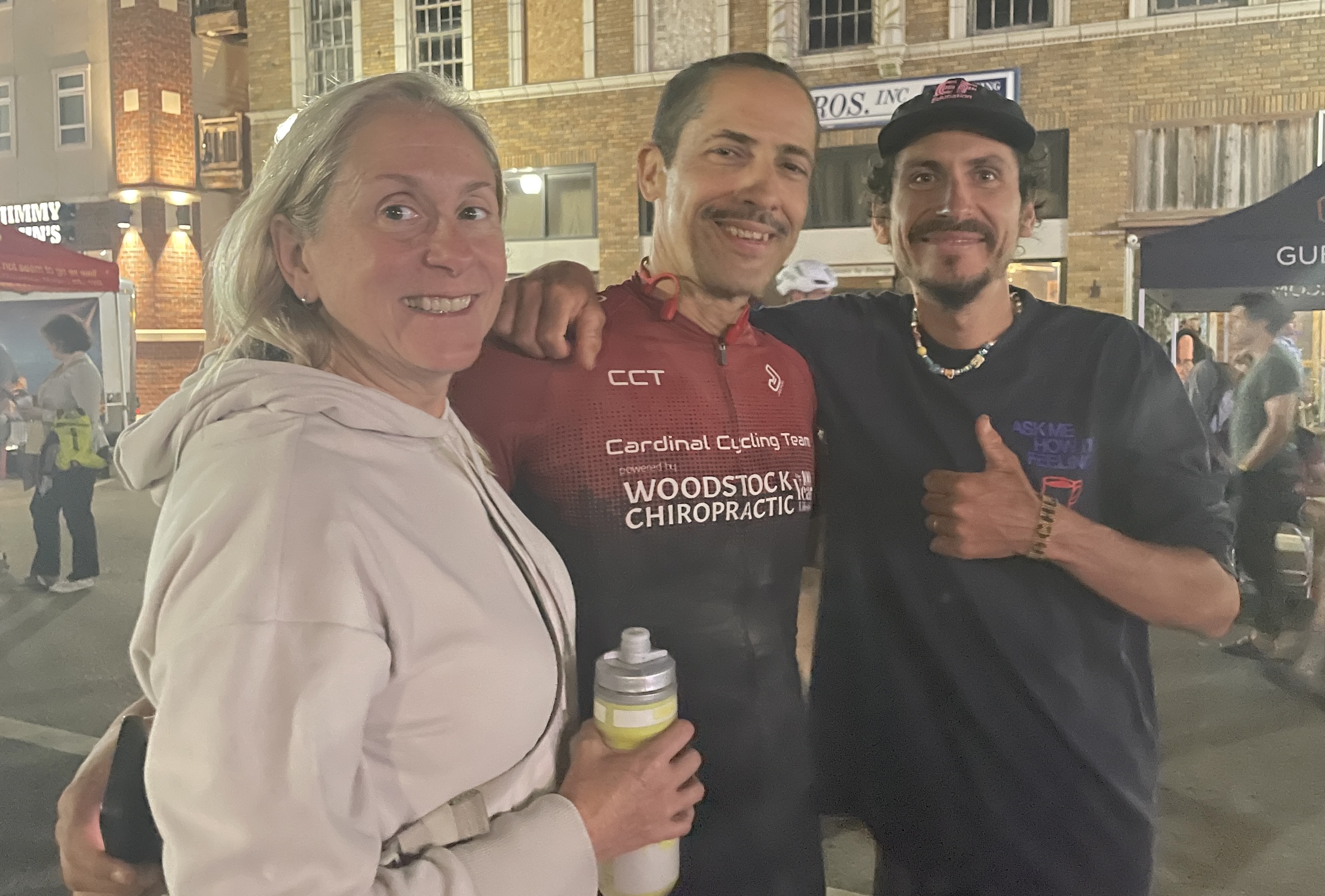
Lachlan Morton (EF Education-EasyPost), who won his first Unbound Gravel 200 in his fourth try, received uproarious approval from the huge crowd lining Commercial Street for the men’s finish this past weekend. He was mobbed by media for photos and interviews.
Just four hours later, Morton was seen on Commercial Street again, this time ambling in the shadows of dusk amid the food trucks and amateur riders who were just crossing the finish line. He chatted with one individual for five minutes who had just put in more than 28 hours to complete the Unbound XL 350 adventure, asking his new friend about the frame bags and bike set up. Slowly, Morton was identified by more people, and he politely accepted more requests for photos, giving a thumbs up and a smile each time, also engaging in conversation about each person’s ride at Unbound.
Two days before the races, dust clouds rose above all the gravel roads around Emporia as the avalanche of visitors took off on informal shakeout rides by event sponsors and cycling organisations. There seemed to be a parade of top-tier racers out for casual training sessions, but no one recognised Keegan Swenson passing. He appeared to say ‘good morning’ with a small wave to everyone he passed.
Later on that same ride, I saw women’s 2023 Unbound 200 winner Caroline Schiff on the side of the road with a clean bike and a German national champion’s jersey. There were two cars and several photographers close by, so I stopped for a quick chat. She said the photo session was taking a bit longer than expected because so many people had stopped and asked for photos with her. She didn’t mind.
And where else but Emporia can you call a local bike shop, this one Merchant Cycles, and rent a Specialized gravel bike during the busiest week of their year and everyone says hello and smiles?
None of that would most likely happen at l’Alpe d’Huez before the Tour de France. Unbound Gravel may be getting bigger and more global, but the spirit of gravel is not in danger of disappearing.
The Spirit may be alive, but so is aggressive tech optimisation
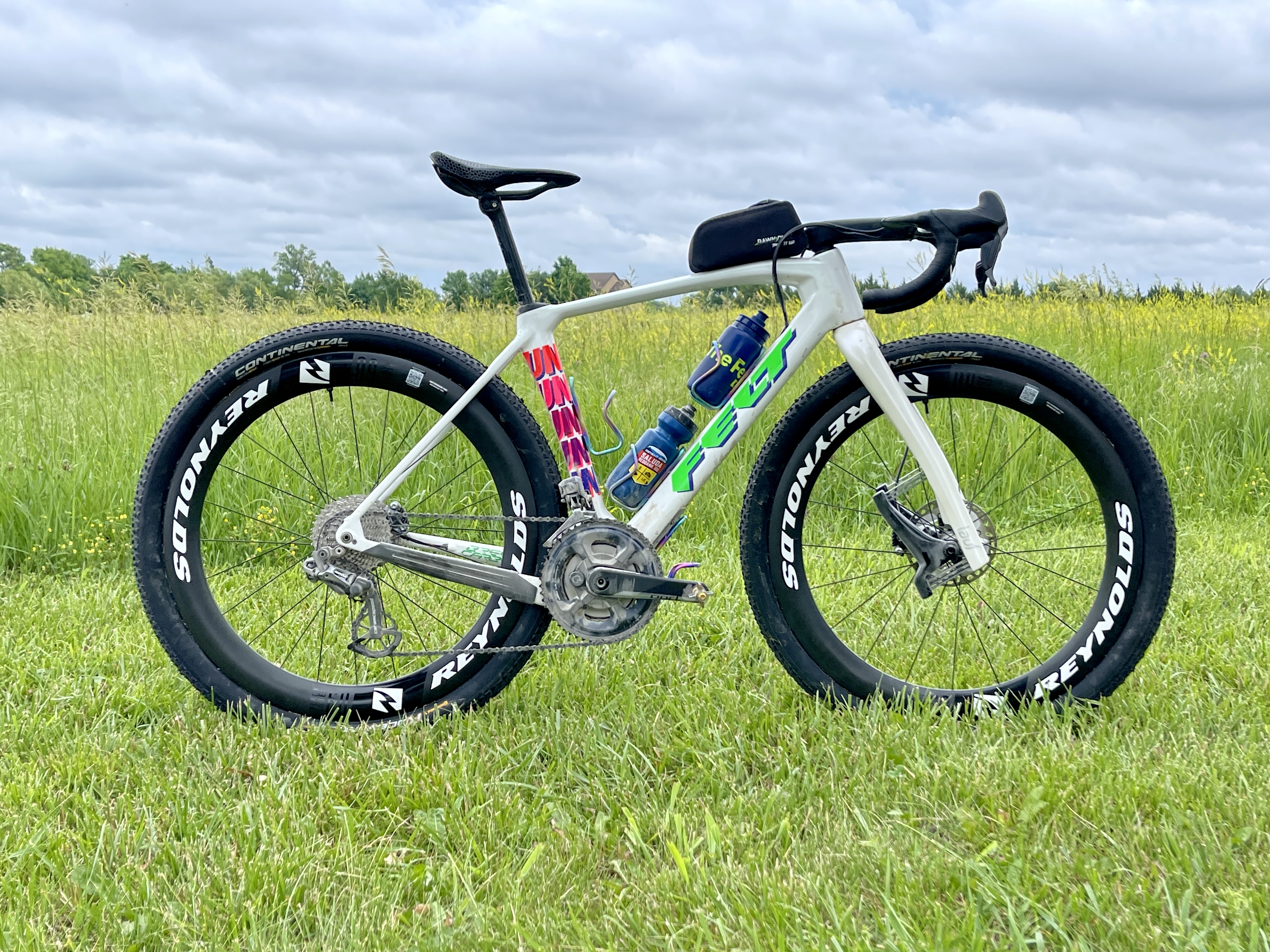
With the evergrowing literature surrounding the potential gains on offer from lower rolling resistance, better aerodynamics and other tech optimisations, more and more riders are trying to eke every last second out of their setups. In a race like Unbound Gravel, with its 200 mile distance and near-ten-hour winning time, those gains are magnified, and their attractiveness too.
Couple that with the absence of UCI commissaires, their pernickety rulebook, sock-height rulers and prototype homologation processes, and you open the door to riders trying some seriously wild things, as rounded up nicely in our mega tech gallery.
You had riders in knee-high calf sleeves; riders in time trial helmets, and no we're not talking about the POC Procen Air ridden by Lachlan Morton; one rider even had a 180mm deep fairing added to their rear wheel, along with a makeshift hydration-bladder-carrying frame bag. Another claimed to have spent the night before the race shaving the little hairs off their mountain bike tyres, saying "they're worse than leg hair."
Such homemade optimisations are typically found in the other cycling discipline that the UCI has no control over, Triathlon. The International Triathlon Union (ITU), the sport's governing body, takes a much more liberal approach to optimisation, and you'll commonly find wild adaptations. Just look at Adam Hansen's homemade bike plans from a few years ago for evidence.
Two years ago, Unbound organisers banned time-trial aero bars, with multiple riders saying they went against the 'Spirit of Gravel'. When there's a victory on the line, the so-called Spirit will be challenged, and it appears it's well and truly under fire.
Even Morton, for all his Spirit of Gravel excellence, optimised his own setup with a never-before seen hydration-housing skinsuit. He did restore balance, though, by eschewing a power meter and riding on vibes alone, so perhaps all is not lost.







